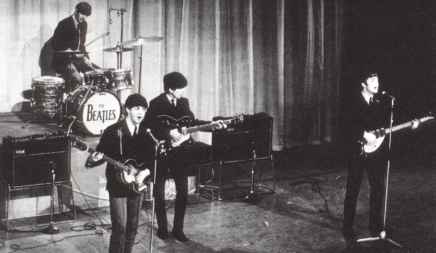
In conversation for the Guardian, grime experts Dan Hancox and DJ Target revealed that the use of the words grime or grimy to describe this mutated 140bpm hybrid of sub bass and aggro MCing was confusing to the genre's prime movers. Grime has always meant dirty, which makes its adoption as the name for British music's biggest recent export - also originally known as sublo, 8 Bar or eskibeat - such a mystery to the people who first invented it. The story: Unlike many of the terms music has taken up, grime has maintained a remarkably consistent meaning since first arriving in the 1580s, derived from the Middle English grim, meaning dirt or filth. The association with sweat picked up a sexual component that proved somewhat irresistible to bawdy-minded jazz and rhythm and blues musicians, and by the end of the 60s it had performed the same 180 degree turnaround as words like 'bad' and 'wicked' - with a little help from James Brown - to mean the very best in earthy pleasures, musically speaking. Then, during the 1930s and beyond, the sense shifted. Being funky was empirically not a good thing. In the early 1900s there was even a blues song called Funky Butt by Buddy Bolden, about a whiffy overpacked dance hall in New Orleans that local musicians rechristened Funky Butt Hall. As the centuries passed, the sense of the word changed, so that the smell became less fire-related and more biological. It dated back to the early 1600s, and travelled to America with French settlers, which is why funk and funky - referring to a bad smell - entered and remained in American slang far longer than it did in British English. The story: In old French dialect, funkier was a verb meaning to irritate someone by blowing smoke at them or over-fumigating a room. Had he tried to promote a "Rock and Roll Party" a couple of decades earlier, it would have caused outrage.

By the time DJ Alan Freed started using the term to describe the type of hyped-up country music infused with the primal urgency of rhythm and blues he played on his radio shows in the early-50s, the sexual component had been dialled down enough that it simply became an acceptable term for dancing.

Trixie Smith's 1922 blues ballad My Man Rocks Me (With One Steady Roll) catches the term in transition, its meaning covering both sex and dancing (and thereby music), but no mention of boats whatsoever. By the 1920s, the term had become a popular metaphor for either dancing or sex, but unlike contemporaneous expressions such as "blanket hornpipe" and "making a lobster kettle", "rocking and rolling" managed a second transition, this time from utter filth to relative acceptance. Any phrase that is used to suggest rhythmic movement of this sort - particularly by lonely seamen - runs the risk of being purloined as an euphemism. The story: The term rock 'n' roll derives from the more literal " rocking and rolling", a phrase used by 17th-century sailors to describe the motion of a ship on the sea.


 0 kommentar(er)
0 kommentar(er)
